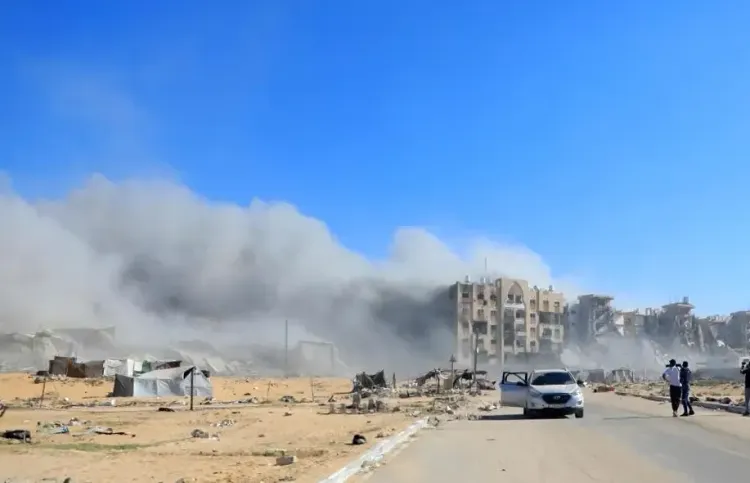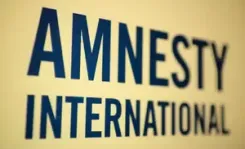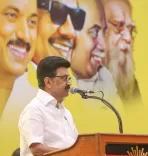Is Pakistan's Military Under Fire for Its Gaza Solidarity?

Synopsis
Key Takeaways
- Pakistan's military faces criticism for symbolic support
- Public statements do not reflect policy changes
- Rhetoric often aligns with global outrage
- Grassroots activism is vital for genuine solidarity
- Critique extends to various regimes in the Muslim world
New Delhi, Sep 14 (NationPress) As the humanitarian crisis in Gaza marks its second year, Pakistan's military establishment is encountering heightened scrutiny for what experts label as “performative solidarity” with the Palestinian people.
Despite an array of public statements denouncing Israeli aggression and advocating for “Muslim unity”, analysts suggest that these actions are primarily symbolic and do not indicate any substantial policy change.
A commentary from 'Middle East Monitor' highlights that the timing of these proclamations often aligns suspiciously with periods of increased global outrage—moments when images of Palestinian children affected by airstrikes flood international news or ceasefire talks are underway. During such times, officials from Pakistan, especially within the defense ministry, issue solemn declarations of support, the article notes.
Nonetheless, critics argue that these statements function more as political theater than as authentic diplomatic efforts. “The performance is so transparent,” the analysis points out, “that even the clumsiest village drama troupe might blush at its lack of subtlety.”
The deeper issue, according to the analysis, rests in the long-standing priorities of Pakistan's military elite. For decades, generals in Rawalpindi have not acted as champions of Muslim causes but rather as strategic players serving whichever foreign patron secures their privileges.
From deploying troops to quell uprisings in Arab nations to facilitating U.S. military operations, Pakistan's armed forces have consistently aligned with power centers that provide financial or diplomatic advantages.
The report implies that the Palestinian cause is treated as a rhetorical device—invoked when domestic sentiment necessitates a display of empathy, but rarely pursued with genuine conviction. This mercenary instinct is often disguised in terms such as “national interest” or “strategic balance”, yet the underlying motive remains institutional self-preservation.
In a striking analogy, the analysis draws parallels between Pakistan's military structure and Zionist ideology. While publicly condemning Israel's actions in Gaza, Pakistan's generals are suggested to admire the Israeli model of a militarized state where the army dominates policy, controls resources, and thrives on ongoing crises.
“In their fantasies,” the report states, “Pakistan becomes a Zionist state of South Asia—minus the competence and global clout.”
The critique extends beyond Pakistan itself. Across the Muslim world, regimes claiming Islamic credentials have largely responded to Gaza's suffering with silence or complicity. Gulf monarchies maintain economic relationships with Israel while providing minimal humanitarian aid. Countries like Turkey and Egypt, despite vocal condemnations, continue trade policies and border regulations that reinforce the siege.
Ultimately, the analysis concludes that true solidarity is not found in official speeches but rather in grassroots activism. It is the civilians—activists, writers, and ordinary citizens—who truly embody resistance. As Gaza continues to endure hardship, the disparity between rhetoric and reality within Pakistan's power corridors remains a growing source of public disillusionment.





